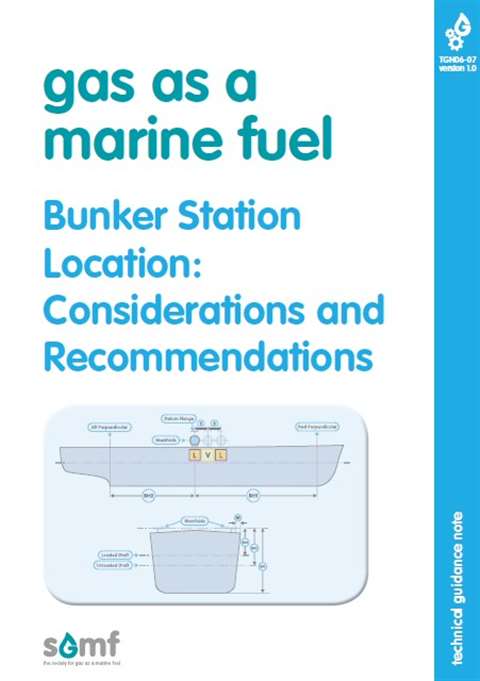LNG guidelines offered for marine safety
08 July 2021
LNG’s use in marine applications “expanding quickly” group says
The Society for Gas as a Marine Fuel (SGMF) has published two new guidelines to improve the safety of LNG-fueled ships.
The documents are intended to assist greater standardization in crew competency and vessel design.
SGMF’s Operation of ships with Liquefied Natural Gas (LNG) – competency and assessment guidelines defines the skills required for any party involved in the preparation, storage, handling and use of gas as a marine fuel. The guidance can also be used by organizations developing training in these competencies.
 New recommendations for the position of bunker manifolds and stations aim to assist naval architects in designing gas-fueled ships.
New recommendations for the position of bunker manifolds and stations aim to assist naval architects in designing gas-fueled ships.
“The use of LNG as a fuel on marine vessels is expanding quickly,” said Ray Gillett, General Manager, GTT Training and Chair of SGMF Working Group 14. “To ensure that these vessels are operated safely and efficiently it is important that crews fully understand what they are dealing with. These guidelines provide a basis for operators and training organizations to implement the necessary training to achieve that aim.”
A new Technical Guidance Note recommends on the best locations for bunker manifolds or bunker stations on gas-fueled ships. The guidance complements existing SGMF documentation on manifold arrangements and is intended to promote compatible bunkering operations across a widening range of bunkering facilities and installations.
Bob Kamb, a member of SGMF Working Group 6.5 and formerly Manager, LNG Services ABS Group Consulting Inc, said: “Seafarers frequently complain that ship designers don’t have to sail the ships they build. This guidance alleviates that complaint by providing a decision support framework for optimizing bunker manifold location. This is a useful tool resulting in safer, easier to implement and more efficient LNG bunkering operations.”
Both publications were prepared by working groups comprising SGMF members. They, along with an extensive library of other guidance, are available freely as part of SGMF membership. Non-members can also purchase hard copies.
“The rhetoric around LNG is rising to fever pitch, but SGMF remains a calm voice calling for consistent safety standards to be applied to the most widely available of shipping’s alternative fuels,” said Mark Bell, General Manager, SGMF. “We are delighted that our working groups have been able to contribute further to the consolidation of safety standards with these two important publications.”
POWER SOURCING GUIDE
The trusted reference and buyer’s guide for 83 years
The original “desktop search engine,” guiding nearly 10,000 users in more than 90 countries it is the primary reference for specifications and details on all the components that go into engine systems.
Visit Now
STAY CONNECTED




Receive the information you need when you need it through our world-leading magazines, newsletters and daily briefings.
CONNECT WITH THE TEAM













